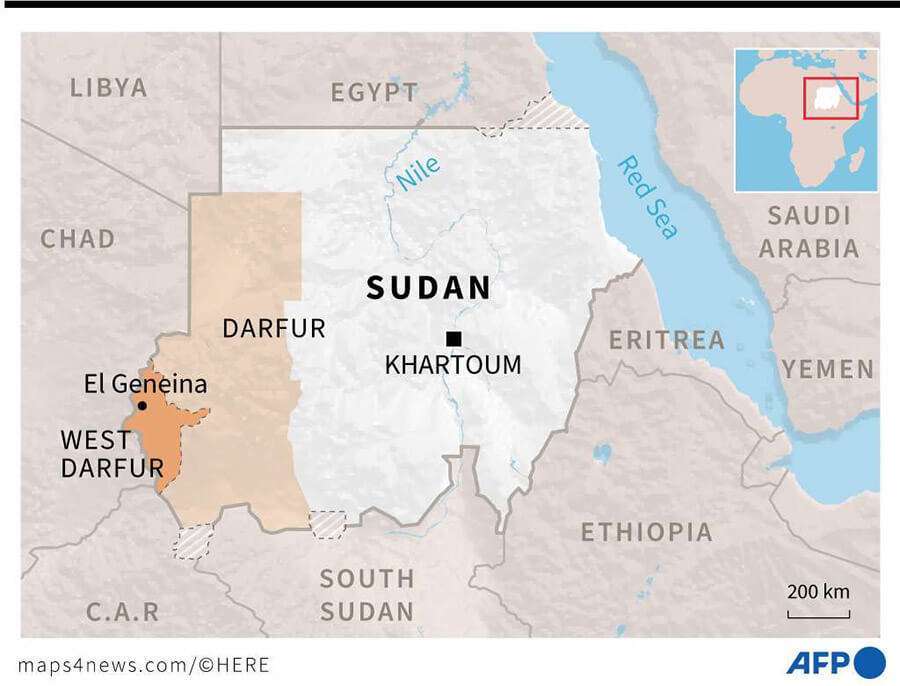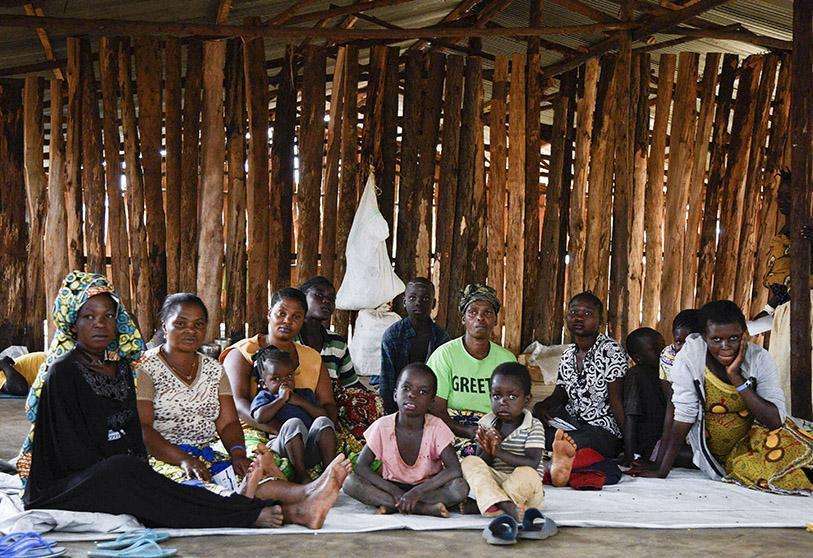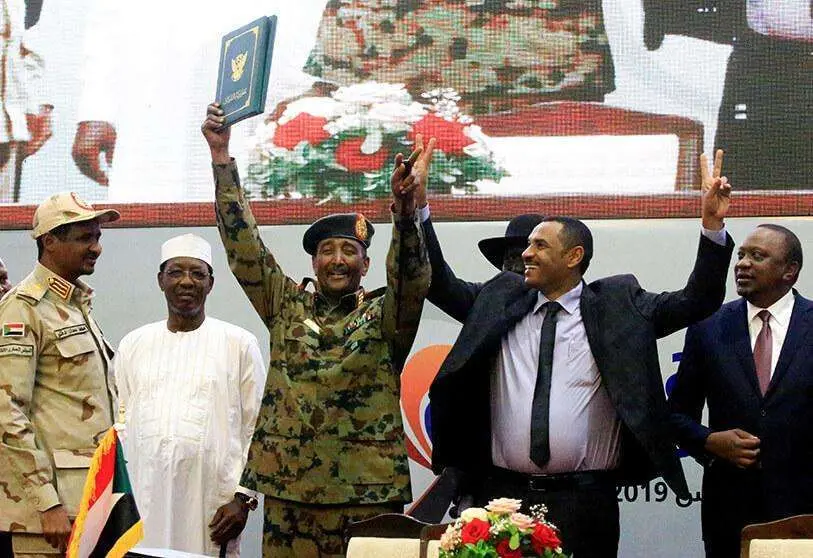This week Sudan's government met urgently to discuss the complicated situation in the country. Last weekend, hundreds of demonstrators took to the streets to show their support for the army's return to political institutions, and thus a return to military rule.
In this context and in the absence of the forces of the revolution, coupled with internal conflicts between the same groups, Sudanese leaders have already stated that the political transition cannot continue to sustain this situation.
In the various protests, demonstrators demonstrated in front of the cabinet headquarters in the centre of Khartoum, the capital, in support of the army and demanding the dissolution of the transitional government. These demands also included a return to the platform to establish the "Alliance for Freedom and Change and the Restitution of the Revolution Hijacked by Small Powers".

The rapporteur of the committee to promote the dismantling of the Muslim Brotherhood in Sudan and the fight against terrorism, Wajdi Saleh, expressed that "the transitional period does not support the absence of any of the forces of the revolution". Saleh stressed "the need to accelerate the steps to form the Corruption Commission in order to activate the principle of accountability", warning that "they will not allow the country to be dragged into chaos".
In the face of popular unrest and subsequent demonstrations demanding political change and a return to military rule, the rapporteur stressed that "pluralism and disparity are among the characteristics and advantages of democracy", while reiterating his "deep faith in democracy and civil transformation".
In Sudan, the aftermath of decades of civil strife, deep-seated resentments of extreme violence and revenge are intertwined in a society that is equally divided and confrontational. The only solution, say humanitarian leaders and spokespersons, is to fight for shared goals, which is complicated by the very polarisation of society.

The fuse of violence, increasingly shortened, creates chasms of difference between the population from which only the rapprochement of positions and humanity itself can bring the other closer. However, it is difficult to speak of humanity when Sudan has witnessed serious and continuous human rights violations, something that is clearly etched in the retina of the Sudanese.
Even so, within the chaos, a part of society, in addition to the government's support, wants to continue fighting for the country to be able to achieve a democratic path. The struggle for democracy continues, and in order to achieve this goal, Sudanese Prime Minister Abdalla Hamdok presented a new roadmap of policy proposals to call for the consolidation of a democratic state. These 10 proposals aim to implement "the goals of the revolution", starting with initiating de-escalation between the two parties and engaging in dialogue on the issues that divide the Forces for Change and Freedom (FFC).

These new measures are intended to begin to be implemented in a context of conflict that "is not between civilians and the military, but between the camp of civilian democratic transition and the camp of the overthrow of the revolution", Hamdok points out.
This complicated path, threatened by divisions and with the present reminder of the attempted coup d'état last September, takes as its point of reference the "constitutional obligation" that the country is "a democratic republic" and a "multi-ethnic society".
If there is one thing that characterises democracy, it is the plurality of opinions and identities, something that can also create differences within society, and in the case of Sudan, a country that has not known total pacifism, the discrepancies are accentuated to the point of leading to the cruelest violence.
In this vein, the prime minister's political advisor, Yasser Saeed Arman, demanded the extradition of those wanted for committing serious crimes against humanity, as well as comprehensive reform to restructure power structures and restore the rights of the Sudanese people.

In this speech, Arman acknowledged "the mistake of the forces of freedom" and of not forming "a Legislative Council" correctly, an institution that "represents the voice of the people". Furthermore, he stressed that the governmental issue will not be resolved "if not by the will of the Sudanese people" who want "a civilian government to manage their resources", describing the slogan of a possible dissolution of the government as "wrong".
From the perspective of terrorist threats, Arman praised the efforts of the revolutionary forces in getting the US to remove Sudan from the list of countries that support terrorism. On the economic front, he praised the reforms in relations between Sudan and international organisations, which reflected positively on the improvement of the local economy.

Sudan thus faces a delicate political stage in which discontent, coupled with the interference and strong presence of the military in society, is making its way in a climate of social tension and, above all, uncertainty. Sudan's history weighs heavily on a transitional government that is trying to eliminate something as deeply rooted in the Sudanese as violence in a climate that is not conducive to its disappearance.
The country is trying to conform to pacifism within a political and social powder keg that is trying to defend democracy as a symbol of plurality and, ultimately, freedom.












